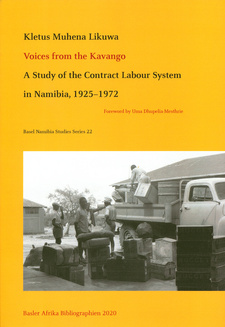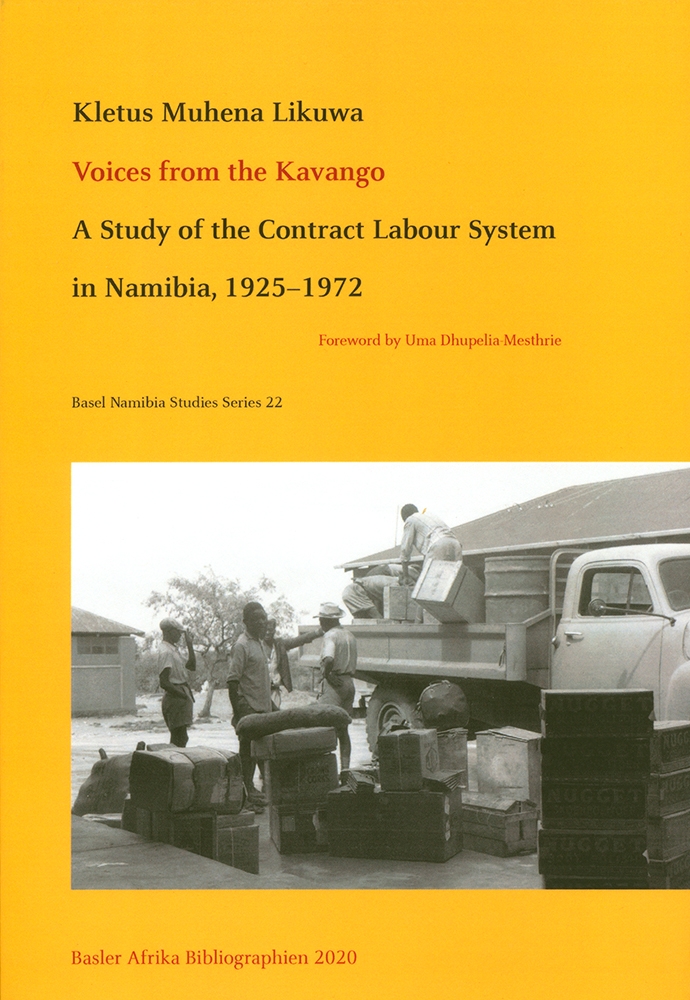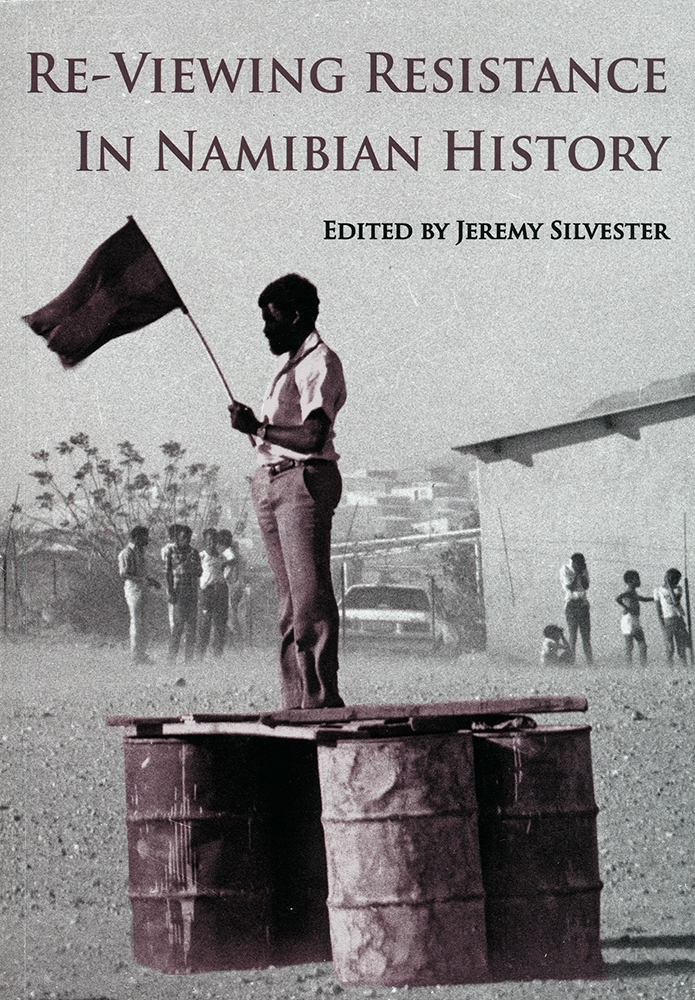Voices from the Kavango, by Kletus Likuwa

Voices from the Kavango. A Study of the Contract Labour System in Namibia, 1925-1972, by Kletus Likuwa. Basel Namibia Studies Series 22.
The author of Voices from the Kavango, Kletus Likuwa, obtained his PhD from the University of the Western Cape for the thesis which comprises this book. He is the Deputy Director for the Multidisciplinary Research Centre (MRC) at the University of Namibia in Windhoek.
Foreword to Voices from the Kavango
It was an affinity of interest in forced removals, homelands policies, contract labour and oral histories that brought Kletus Likuwa and me together in the years of his postgraduate studies in the History Department at the University of the Western Cape. These fruitful years produced a new black historian of the Kavango, an area which Likuwa observes has been much neglected by scholars given the difficult conditions for research there. Scholarship on contract labour, in particular, neglected to sufficiently consider the movement from this area and official sources too obscured the numbers from the Kavango subsuming them under Ovamboland figures. While I have never been to the Kavango, Likuwa, as a member of the Vagciriku community, is a master story teller with a feel for the area. As he traversed through the villages of the Kavango in search of the vakacontraka7, the contract workers, to interview, the reader gains a feel for the geographical terrain and the villages of Kangweru, Guma, Korokoko, Diheke, Mabushe, Bagani, to name just a few of many that stretch from the western to the eastern parts of the Kavango, to find a place in history. The research is impressive drawing on significant archival sources, in particular, the local files dealing with Rundu but the book shines in its use of oral histories. There is a sensitivity as to how to conduct oral interviews, a talent for the languages of the area such as Rukwangali, Rumanyo and Thimbukushu, and a maturity in analysing the narratives themselves well beyond mining these for information. Likuwa is sensitive to processes of transcription and translation and, to allow the interviewees to be heard, extracts from the original interviews are included along with the translations. He has created a new archival collection through his generous donation of these interviews to the National Archives of Namibia. Likuwa infuses the category of contract labourer with life in the narrative he constructs. The men have names, biographies and feelings. They express the hopes they had, their disappointments, their coping strategies and their journeys. We learn from Ndumba Shiren-gumuke of Hoha village, for instance, 'It was in Grootfontein where we got bought. We learn about the 'don't breathe machines', the x-ray machines at the screening processes, the renaming by the employers and the retaliation as workers privately gave names to their employers, and interactions with the smissus7 on the farms. From the mines to the farms, Likuwa, takes us through these one on one contacts. This is not a local history but a transnational history taking one across the borders into Angola, Zimbabwe and South Africa. We are left with the powerful words of Mathias Ndumba Shikombero who was interviewed at age 76 in Rucara village after working for twenty-two years as a contract labour what did we really bring from that contract work? Nothing! There were some simple, ugly blankets with pictures of lions on them. Likuwa's major oral histories of work may prove his great-grandmother Susana Mate Kamwanga, wrong in her reprimand to him "you the children of nowadays who only want to record to go and write in books. What will you get out of it? You will get nothing out of it?; The scholarship of Namibia is enriched with this new work on the Kavango and the people of this most northern region have secured their rightful place in the country's history.
Uma Dhupelia-Mesthrie
Senior Professor, History Department, University of the Western Cape
This is an exerpt from Voices from the Kavango, by Kletus Likuwa.
Title: Voices from the Kavango
Subtitle: A Study of the Contract Labour System in Namibia, 1925-1972.
Author: Kletus Likuwa
Series: Basel Namibia Studies Series 22
Publisher: Basler Afrika Bibliographien
Basel, Switzerland 2020
ISBN 9783906927190 / ISBN 978-3-906927-19-0
Softcover, 17 x 24 cm, 232 pages, several b/w photographs
Likuwa, Kletus im Namibiana-Buchangebot
Voices from the Kavango
Voices from the Kavango: A Study of the Contract Labour System in Namibia, 1925-1972.
Re-Viewing Resistance in Namibian History
Re-Viewing Resistance in Namibian History brings together the output of experienced academics and a new wave of Namibian historians.


